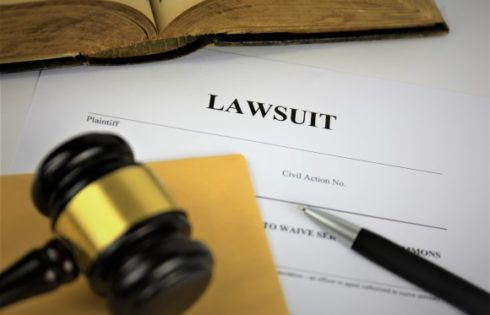
Supreme Court precedent and current statute play a role
Private universities arguably get to have their cake and eat it, too, when it comes to the kind of oversight to which public schools are subject: Private institutions get to avoid the inconvenience of responding to Freedom of Information Act requests while enjoying the benefit of government funds by way of federal loans and grants.
Supreme Court precedent, as well as current federal statute, have both played a role in shielding private universities from federal information oversight. Experts who spoke to The College Fix said private universities, by dint of accepting federal money, are still subject to some level of federal oversight, though “significant gaps” still remain between public and nominally private institutions.
What are FOIAs and what do they have to do with higher education?
The federal Freedom of Information Act was signed into law by President Lyndon Johnson in 1966. It allows American citizens to request full or partial disclosure of records from any federal agency. Those agencies are required to comply with the request for information unless it violates an exemption, for instance if the disclosure would constitute a threat to national security. The act has been amended and expanded over the years.
Every state has its own version of a freedom of information act. Public universities are among the state-level institutions subject to those acts. The University of Michigan’s Faculty Handbook, for example, states that, under Michigan’s FOIA law, “all persons, except those persons incarcerated in state or local correctional facilities, are entitled to full and complete information regarding the affairs of government and the official acts of those who represent them as public officials and public employees.”
Because of the time and resources required to fulfill FOIA requests, public schools have offices expressly dedicated to handling them. Schools generally charge requesters for the administrative costs of fulfilling the orders, though they can waive those fees if they choose to.
Private universities accept funds but not FOIA requests. Why?
The vast majority of private universities accept significant amounts of government funds, which include grants and federally backed student loans. A small cohort of less than twenty private colleges and seminaries have opted to completely abstain from government money, but most private institutions receive federal funds in some form or another.
Yet these schools are not formally subject to freedom of information act provisions at either the state or federal levels, even as they accept federal grands and their students use considerable amounts of publicly funded money to attend them.
Therese Nohos, an attorney with the firm Rathje Woodward, spoke to The Fix via email regarding the legal justification for what appears to be a double standard between private and public schools. Nohos, who has extensive experience in higher education regulatory compliance, told The College Fix that the Supreme Court, in 1980’s Forsham v. Harris, decided that “the mere receipt of government funds does not transform a private entity into a federal agency for purposes of FOIA.”
That doesn’t mean the schools are totally free of federal oversight, Nohos said. Since Forsham, she wrote, “Congress has chosen not to radically expand FOIA. Rather, our current system allows government agencies to condition receipt of government funds on the submission of information from the recipient.”
“Once this information is reported by the institution to the government, the public may obtain it from the government agency via FOIA. This system strikes an appropriate balance between the public’s right to know how government funds are used and an institution’s legitimate interests in protecting confidential information and avoiding the significant costs that go along with responding to FOIA requests,” Nohos said.
Mike Hiestand, Senior Legal Counsel with the Student Press Law Center, a nonpartisan nonprofit firm that provides legal services to student journalists, pointed out that there are requirements that private universities must meet in order to receive public money. For example, the Clery Act requires that private universities track and report statistics about campus crime. Hiestand also noted that ordinary citizens can obtain some information about private universities from the government through IRS Form 990s.
Significant gaps still exist between the transparency requirements of private universities and public universities, Hiestand pointed out.
“I would love to see FOIA laws re-written to take into account and track the significant public money — state and federal — that many private schools receive and to hold them accountable for some of the public functions they perform,” he said.
Hiestand pointed to the small fraction of private universities that “walk the walk” by refusing to accept any government funds. In his view, private institutions should not be subject to the inconvenience of public scrutiny and FOIA requests. However, he argued, that particular exemption from public scrutiny should be conditioned on the school’s forswearing of public funding.
Hiestand doesn’t believe that it makes sense for private universities that accept public funds to be held to different standards than public universities, even if they’re subject to indirect FOIA requests and accounting requirements like the Clery Act.
By some measures, schools get federal money from multiple sources
Nailing down just how much federal money private schools get every year can be tricky.
The economist Richard Vedder has argued that there are “really almost no truly private universities” as virtually all of them are “heavily dependent directly or indirectly” on government support, particularly federal loans, grants and tax credits.
University of California, Berkeley professor of public policy and former Secretary of Labor Rober Reich has lamented the “high per-student government subsidies at the elite private universities, and the low per-student subsidies in public universities.” Reich argues that private universities also benefit disproportionately from tax deductions for people who make charitable contributions to the schools.
These deductions, Reach claims, are economically indistinguishable from government spending, as the money “has to be made up by other taxpayers.”
The watchdog group Open the Books, meanwhile, calculated that in the six-year period 2010-2015, the Ivy League universities received nearly $26 billion in federal payments.
MORE: Student journalist hit with $8,000 bill for Freedom of Information Act request
MORE: ‘We are the transparency police’: A lesson on FOIAs
IMAGE: Sashkin / Shutterstock.com
Like The College Fix on Facebook / Follow us on Twitter






Please join the conversation about our stories on Facebook, Twitter, Instagram, Reddit, MeWe, Rumble, Gab, Minds and Gettr.